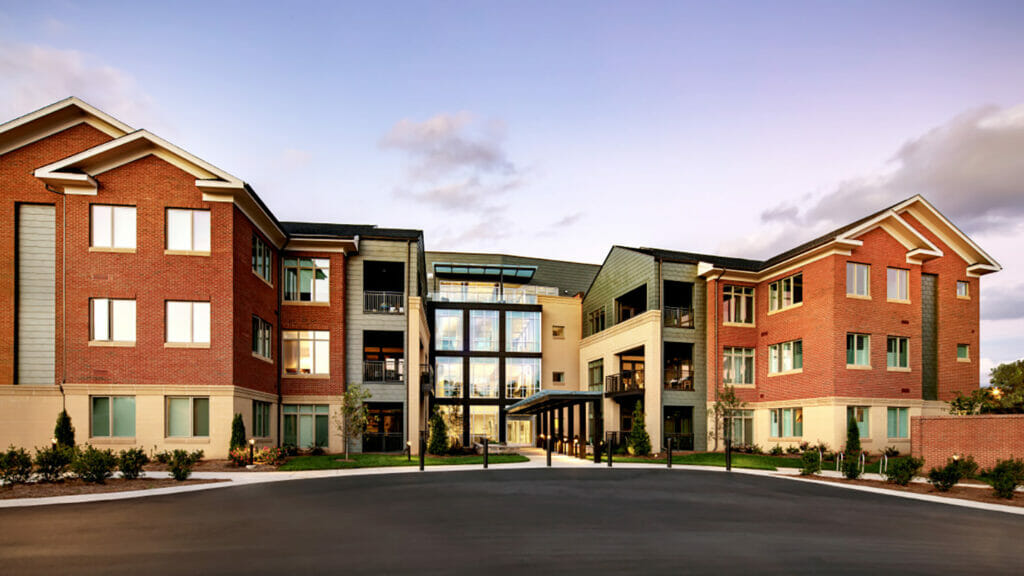
A research collaboration between a senior living provider and a higher education institution is growing into a national model for teaching coping skills to family caregivers.
After receiving widespread attention for demonstrating positive outcomes in Charlotte and other parts of North Carolina, the Caregiver Thrive, Learn, Connect program is expanding across the country.
It began when Dolores Gallagher-Thompson, PhD, Stanford University School of Medicine research professor emerita, developed an in-person Coping with Caregiving program for individual and small groups of family caregivers 20 years ago. Julian Montoro-Rodriguez, PhD, University of North Carolina at Charlotte professor of sociology and gerontology, then adapted the program for Zoom during the COVID-19 pandemic, launching the free Caregiver TLC educational workshop in response to the needs of family caregivers.
Southminster, a Charlotte-based continuing care retirement / life plan community, invested in the program to enable it to be offered free to family caregivers across Charlotte and North Carolina. As part of the team that helped recruit facilitators and educate the community about the program, Southminster promoted the research to help make the program sustainable long term.
The research
The research phase of the program, spearheaded by UNC Charlotte and supported by funding from Southminster, began in the Charlotte area in spring 2021, with findings released this past summer in the journal Clinical Gerontologist.
The research involved free online workshops and support to adults providing care to people living with memory loss, dementia or chronic illness. Trained facilitators led caregivers through six weekly sessions designed to teach coping skills to deal with stress, depression and burden, as well as strategies to improve quality of life.
“It’s an active learning process, not a support group,” Gallagher-Thompson told McKnight’s Senior Living.
Data showed that caregivers experienced a significant reduction in depression and stress, and improved their view of their role as caregivers. It also confirmed that the program can be delivered effectively via technology.
“‘There was a positive effect, no matter whether those being cared for suffered from memory loss, dementia or chronic illness,” Montoro-Rodriguez said in a statement. “In addition, even though some people believe it makes sense to develop different programs for ethnic groups and minorities, this research program indicates that the same approach serves various ethnicities equally.”
Community partners
Working with community partners to embed the program into a range of services made the program sustainable. Sheryl Gerrard, Jewish Family Services senior engagement manager, called it a “ripple effect.“
“We have our own base of caregivers, and we work with many, many family members, so we can reach a whole different audience that might not have been connected through the university or Southminster,” Gerrard said in a statement. “The program’s themes — such as stress coping and anger management — are so universal across the caregiving experience.”
Gallagher-Thompson said that the partners increased knowledge and awareness of the service as trusted members of the community.
Tracy McGinnis, Southminster vice president of philanthropy and strategic initiatives, said that the Caregiver TLC program is an example of how innovative partnerships can accelerate work in developing evidence-based programs of excellence that contribute to aging research while improving caregiver outcomes.
McGinnis told McKnight’s Senior Living that Southminster believes in collaborating to more quickly bring programs to communities outside the walls of the organizations.
“Collaborating gives us the ability to share resources, avoid duplication of efforts and enhance our outreach and community engagement by creating sustainable programs,” McGinnis said, adding that one of Southminster’s philanthropic goals focuses on community education.
Supporting social issues, she added, will make the community more attractive to the skilled workforce, and participating in philanthropic work with a community focus can help build a reputation as a trusted community partner. Caregivers also become aware of Southminster as an aging services resource, which could translate into prospective residents down the line.
Moving forward
Recognizing the diversity of caregivers across the nation, the Caregiver TLC program now is taking the next step and is being translated and culturally adapted for Latinos and Spanish speakers by UNC Charlotte.
Southminster is forming an advisory board to continue to work with other nonprofits in the area so they can embed the program in their service offerings, making the program sustainable, McGinnis said. The community also is starting to share its experience and the research with other CCRCs in the state and throughout the country.
“Caregiving is not a sprint; it’s a marathon, and marathon runners have to learn when and how to expend their energy so they make it to the finish line,” Gallagher said. “This program helps caregivers develop that mindset and strengthens their skill sets to continue in this challenging journey.”


